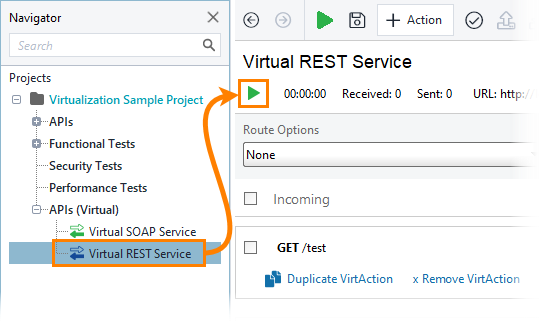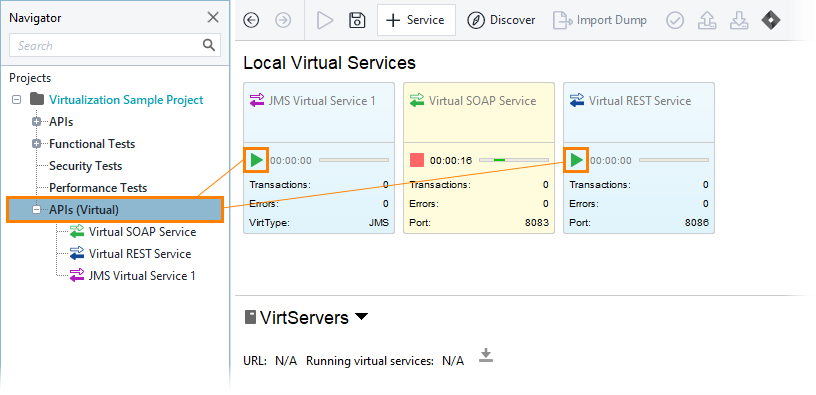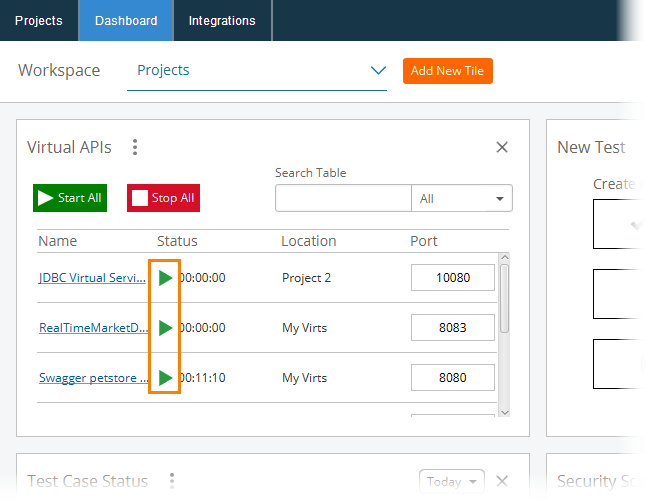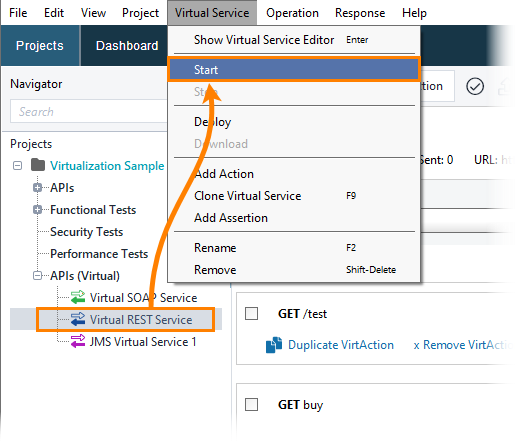This topic explains how you run a virtual API (virtual service) on the computer, where ReadyAPI is installed. For information on running virtual services on some other machine, for instance, on a server, see Running Virtual Services on Remote Computers.
You can start a virtual service from various places in the ReadyAPI user interface.
Virtual Service Editor
-
Select your virtual service in the Navigator panel to open the service for editing.
-
Click
 on the toolbar to run the virtual service:
on the toolbar to run the virtual service:
APIs (Virtual) node
ReadyAPI displays virtual services when you select the APIs (Virtual) node in the Navigator. You can run a service from this page:
Dashboard
You can run a virtual service from the Virtual APIs tile in the Dashboard (if you do not have this tile on the Dashboard, you can add it any time):
Virtual Service Main Menu
-
Select a virtual service in the Navigator.
-
On the main menu, select Virtual Service > Start:
Running From Test Cases
It may be convenient to run a virtual service from functional tests. To do this, you add the Virtual Service Runner test step. Put this step to the beginning of your test case to run the virtual service before the test sends any request to it. See About Automating Virtual Service Runs for details.
Running From the Command Line
To run a virtual service from the command line, you use the VirtRunner.bat/.sh file. See VirtRunner Command Line for information on using it.
Stopping Virtual Services
After you started a virtual service, the ![]() button is replaced with
button is replaced with ![]() . Click it to stop the service.
. Click it to stop the service.
The Virtual Service Runner step can also be used for stopping virtual services. To do this, simply place the test step to the end of your test case and configure the step properties to stop the virtual service.
Running Multiple Virtual Services
You can run multiple virtual services from the ReadyAPI UI if these services do not use request routing. If you have a virtual service that routes requests to some real API, you can run only one service at a time from ReadyAPI. To run multiple virtual services that use request routing, install VirtServer on your machine or on a remote computer and run these services on VirtServer.




